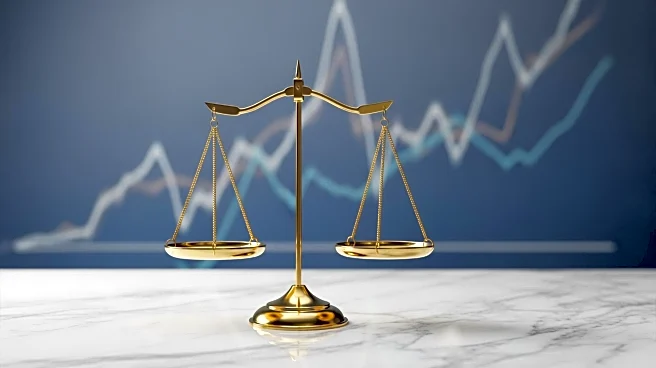What's Happening?
Bolivia's sovereign credit profile has deteriorated sharply, with major rating agencies placing the country in speculative-grade territory. Standard & Poor's downgraded Bolivia to CCC- with a negative
outlook, citing increasing debt servicing costs and deteriorating external financial conditions. The country's debt-to-GDP ratio exceeds 95%, and foreign exchange reserves have dwindled to a record low. Political gridlock has paralyzed fiscal reforms, while inflation surged to 24% year-on-year. Despite these challenges, Bolivia's sovereign bonds have experienced an unexpected rally, driven by investor speculation that a political shift could unlock stalled IMF programs.
Why It's Important?
Bolivia's credit downgrade and precarious financial position highlight the risks associated with investing in emerging markets. The country's reliance on gold sales to meet foreign debt obligations masks deeper structural weaknesses. The potential for a political shift to the right could lead to economic reforms and increased investor confidence, but the risk of a debt restructuring looms large. Investors must weigh the potential for reform against the likelihood of further downgrades, as Bolivia's credit rating could fall further if debt servicing risks escalate.
What's Next?
For Bolivia to avoid a sovereign default, a new administration must navigate a narrow path between fiscal austerity and political stability. An IMF program could provide financial support but would require painful measures such as abandoning the dollar peg and cutting subsidies. Investors are betting on reforms such as fuel subsidy cuts and capital account liberalization, even if these measures entail short-term economic pain. The outcome of the upcoming election will be crucial in determining Bolivia's ability to implement necessary reforms and stabilize its finances.
Beyond the Headlines
Bolivia's situation serves as a cautionary tale for emerging market investors, illustrating the interplay between political uncertainty, economic fragility, and investor sentiment. The country's structural vulnerabilities, including high debt and weak reserves, remain unresolved. The potential for a political shift offers hope for reform, but the path forward is fraught with challenges. Investors must remain cautious and consider the broader implications of Bolivia's economic and political landscape.









